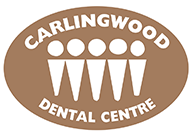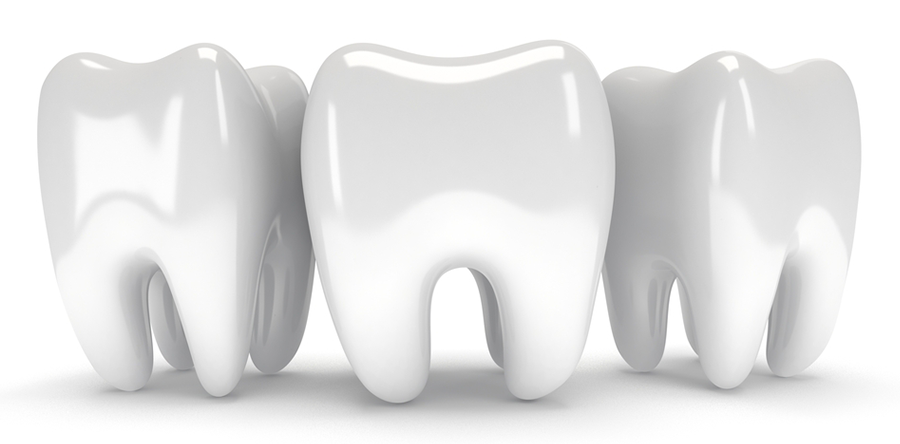Your Ottawa dentist will inform you that your tooth enamel plays the biggest role in keeping your teeth cavity-free. The enamel of your teeth is a protective coating and is the hardest substance not only on your teeth but in the human body. However, despite its strength, it is possible to wear away at your enamel over time. Therefore it is important to understand how you can strengthen your tooth enamel. Here is how you can safely strengthen your tooth enamel:
Fluoride
Many adults have taken to drinking bottled water. This is not only bad for the environment, but for your teeth as well. Most city water sources provide fluoride that helps protect your teeth from decay. It is a good idea to drink tap water to continue to get the fluoride you need to strengthen your teeth. You should also use fluoride toothpaste and speak to your dentist about getting fluoride treatments at your annual checkups. There are also some foods you can eat to aid in providing more fluoride to your teeth, including green tea. Other drinks good for your teeth are cranberry juice and red wine. However, they can add to the staining of your teeth. Green tea will not cause staining, so it makes a good choice.
Diet Choices
There are other food choices that can help strengthen your teeth, providing a combination of much-needed nutrients, including calcium. These foods include:
- Cheese
- Fish
- Dark leafy green veggies
- Nuts and seeds such as almonds and sunflower seeds
- Dark chocolate (yes chocolate!)
- Chinese licorice
- Gum with xylitol
- Naturally fermented foods such as sauerkraut, pickles and kimchee low in sugar
- Strawberries
Vitamins
Eating foods rich in calcium is part of a healthy diet. However, if you want to absorb the calcium effectively, you also need Vitamin D. Vitamins A and C are also extremely good for your dental health. You can find these Vitamins in healthy foods such as fish, egg yolks, liver and fruits and veggies such as carrots, citrus and sweet potatoes that are rich in beta carotene.
Floss Every Day
We know that brushing is an essential part of daily dental hygiene, but too often, we forget that flossing is equally as important. Brushing can only do so much to get rid of the food particles and plaque. Flossing gets deep in between the gum line and teeth to remove food debris and sticky plaque that can wear away enamel and lead to cavities. Floss once each day to strengthen tooth enamel.
Eliminate Sugar
You’ve likely heard about the dangers of sugar for your general health and oral health. Sugar is present in most foods we eat, even within items we wouldn’t think of, like fruit juices, sauces, and bread. This highly acidic ingredient has shown to result in demineralization. In other words, it interacts with bacteria to produce more plaque and wear down the enamel. Avoid or reduce sugar consumption as much as possible.
Decrease Dairy Consumption
We’ve learned a lot about dairy over the past few years and how it interacts with our body and teeth. Though it can be a beneficial source of calcium, dairy products like milk contain lactose, a form of sugar that also contributes to acidity within the mouth. Try non-dairy alternatives instead, or look for labels that are lactose-free.
Drink More Water
Chronic dehydration is a very common problem. Consuming coffee, soda, energy drinks, and alcohol are what many people grab instead of water. Drinking so many other items throughout the day can make it difficult to fit in those eight glasses of water. Aside from many of these beverages being acidic, they can also increase dehydration in your body. Instead of going for the energy drink, opt for water. It’s free from sugar and will help to rinse away food particles while reducing demineralization.
Avoid Smoking
Smokers are at a much higher risk of having weaker enamel, receding gums, tooth loss, gum disease, periodontal disease, and oral cancer. To maintain a healthy smile and avoid potentially severe oral health conditions, avoid smoking or if you are currently a smoker, kick the habit.
Address Dry Mouth
If you experience dry mouth consistently, talk to your dentist about it. This occurs when there isn’t enough saliva in your mouth, which is vital in reducing bacteria and preventing cavities. Saliva also contains phosphate and calcium, which are important minerals. Have it addressed to protect your tooth enamel.
Annual checkups with your Ottawa dentist will help keep tabs on your tooth enamel and provide you with the fluoride treatments required for strong, healthy teeth. Ready for your next appointment? Contact us today!


